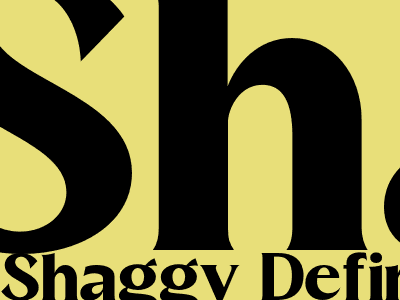
Shaggy: An Exploration of its Etymological and Semantic Evolution
Etymology: Tracing the Roots of Shaggy
The term "shaggy" has its etymological origins in the early 16th century Middle English word "shagge," which referred to anything rough or matted, particularly hair or wool. By the 17th century, "shaggy" had broadened in meaning to encompass not only texture but also excessive hair growth or unkemptness.
Semantic Evolution: From Roughness to Charm
Over time, the semantic connotations of "shaggy" have undergone significant evolution. While the original sense of roughness and unkemptness remains, the term has also acquired more positive associations. In the 19th century, "shaggy" began to be used to describe dogs and other animals with long, unkempt hair, imparting a sense of endearing charm and playfulness.
In the 20th century, "shaggy" gained further positive connotations in the counterculture movement, where it became associated with a bohemian, nonconformist lifestyle. The "shaggy dog story," a humorous tale with an unexpected or anticlimactic ending, also contributed to the term's lighthearted and whimsical undertones.
Synonyms and Related Terms
Synonyms for "shaggy" include:
- hirsute
- uncombed
- disheveled
Related terms include:
- shaggy chic
- shaggy carpet
- shaggy mane mushroom